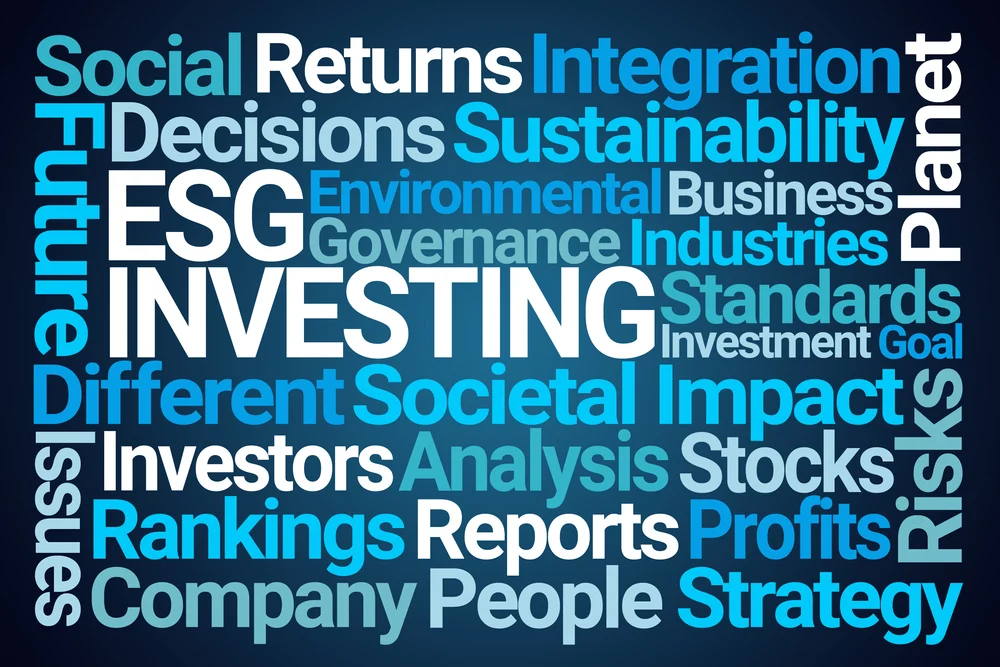
Plus: Stakeholder Engagement, Insights from Larry Fink’s Annual Letter, & BlackRock’s 2023 Engagement Priorities
There has been much written about Larry Fink’s annual chairman’s letter and BlackRock’s recently released 2023 Engagement Priorities.
As communications experts with a deep understanding of sustainability and capital markets, we have summarized three of our takeaways to consider as you advance your sustainability journey.
1. It’s time for an ESG rebrand to take the focus off the triggering term, and back onto what matters – risk mitigation and stakeholder value creation.
If you did a search for the term ‘ESG’ in Mr. Fink’s letter, you would find precisely zero mentions of the hotly debated term. But take a closer look and what you will find is that the E, the S and the G are all very much front and center.
Woven throughout his prose was an emphasis on the importance of a company’s environmental, social and governance strategy for long-term risk mitigation and value creation. From climate risk management and net zero economy transition planning (the ‘E’), to employee engagement, labor force relations, human rights, and corporate culture (the ‘S’), to supply chain management and diversification, business model resilience, product innovation, and board oversight of risk (the ‘G’), the many facets of sustainability remain a core focus for Mr. Fink, BlackRock, and its clients.
What Mr. Fink skillfully accomplished in this year’s letter was applying what we have counseled clients on for some time: to make an impact, don’t treat ESG as a siloed standalone topic – integrate it throughout your strategy, actions, and messaging.
Sharon Merrill’s take: Call it what you may, but your ESG/Sustainability/CSR/Impact strategy will remain of top interest in 2023 and beyond. It should be a priority for leadership teams and boards and must be integrated in how you think, operate, and talk about your business.
2. Stakeholder engagement is the new shareholder communications.
Unlike in the past when Mr. Fink has written two letters – one on behalf of BlackRock’s clients to CEOs, and the other to BlackRock’s shareholders – this year he published a singular letter.
This development is certainly not a surprise, and Mr. Fink’s letter has, in our opinion, sealed the deal. No longer are we operating in a world where you communicate first to shareholders and second to all others. Companies, executives, and their boards need to demonstrate value to all stakeholders – including investors, employees, customers, suppliers, communities, and the world at large. And what BlackRock’s Engagement remind us of are the importance of proactive engagement to nurture relationships and
Sharon Merrill’s take: Taking a stakeholder approach to your communications strategy is a must. Know who your stakeholders are, understand what they value most and identify the risks they may pose. Have a clear, compelling, and targeted message integrated across all channels, and proactively engage with them year-round.
3. Climate risk is an investment risk. And now is the time to prepare to disclose your impact and articulate your energy transition plan.
Mr. Fink may not have led with climate risk in his letter, but the emphasis is still there — as well as in BlackRock’s 2023 Engagement Priorities where “Climate related risk and the energy transition” remain one of the firm’s engagement focuses.
Their motivation is clear – navigating investment risks and opportunities for their clients. This is why they are calling on companies to report “the impact of climate change and the energy transition on their strategy and long-term business model.” BlackRock is also encouraging disclosures aligned with the Task Force on Climate-related Financial Disclosures (TCFD) reporting framework. And they expressed support for the efforts by the International Sustainability Standards Board (ISSB) to develop a global baseline of sustainability reporting standards.
On top of the weight that BlackRock and other aligned shareholders carry, the SEC ruling on its proposal to enhance and standardize climate-related disclosures for investors is right around the corner.
Sharon Merrill’s take: Clearly there is reason to listen up. If climate-risk disclosures and energy transition planning are not topics being discussed at your leadership meetings and board sessions, they need to be. Setting up the systems and resources to collect and analyze your data, develop or refine your energy transition strategy and shape your climate-risk narrative take time. Consider this your year to prepare.
At Sharon Merrill, our expertise is your advantage. From sustainability advisory to high-impact investor relations, executive coaching, IPO readiness and investor days, Sharon Merrill partners with clients on high-impact strategic communications that enhance long-term value. Looking to advance your sustainability journey? Download our “6 Steps to Advance Your ESG Journey.”
Or, contact us to talk about how we can help you and your company.

